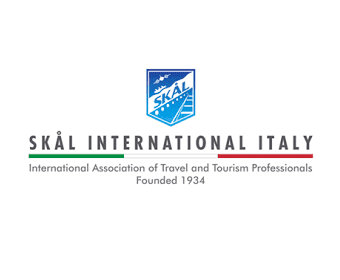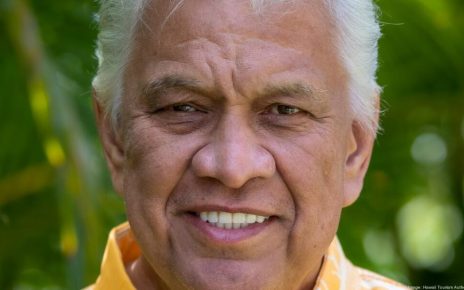How to restart tourism in the weeks and months and even years ahead will involve not just the physical aspects of travel and tourism, such as vaccines, tests, and documents, but also the psychological and social aspects.
- Vice President of Skal Roma says we must stop thinking that everything will return as before.
- Not being able to unload our anger against a concrete enemy, we have to find other ways to deal with stress caused by the pandemic.
- The European Commission estimates a risk of loss of 6 million jobs.
The first 2021 seminar of Skal Academy in Rome, will be on the theme: Tourism in 2021 – how to start again: psychological and social aspects.
Tito Livio Mongelli, Vice President of Skal Roma and head of the Academy and who will be introducing the works and directing the seminar, underlined how “we must stop thinking that everything will return as before, because we will no longer be the same: our certainties, our priorities, and perhaps also our way of working will have changed.”
In the future, “we will have to consider that we will all feel vulnerable, the world will be smaller when we think about the speed of spread of diseases, but the distances will seem enormous when we decide where to go on vacation.”
Prof. Filippo Zagarella, psychologist and psychotherapist, focused on: “the vicious cycle we are falling into: not knowing how to react to an invisible danger; we are in constant stress that depresses us, and we are getting worse and worse. In the face of danger, we automatically feel suffering, fear, and anger.
“Not being able to unload our anger against a concrete enemy, we have to find other escape ways: deny the danger or see something else as an enemy or repress our emotions or exacerbate the rules to fight this invisible enemy.
“However, we live under constant stress, and this stress compromises our immune defenses and makes also us feel badly physically. Not to mention the increased risk of getting sick precisely from the disease whose presence stresses us.”
What to do?
Prof. Filippo Zagarella suggests “adopting the 4C model: knowing, being aware, training in new roles, and accepting change.
Create our “fantastic escape” to reduce stress: let’s put our mind on vacation and, as soon as possible, also our body! We will need holidays, as soon as possible!”
Prof. Matteo Colleoni, professor at UniBicocca University Milan, on the consequences of the pandemic on the demand for general and tourist mobility and on the changes taking place, highlighted how “tourism is a complex” eco-systemic sector “that includes several actors (producers, distributors, consumers, and supports), therefore, a plurality of economic activities are weakly, partially, or strongly associated with the tourism system: over ten million workers in Europe are in this business.
In the world, in the last 2 decades, the flow of international arrivals has more than doubled and it is a flow that largely travel by road (72% in Europe and 59% in Italy), despite the important value of air travel for business tourism and long holidays.
The consequences of the pandemic in some European regions, the high dependence of local economies on the tourism sector, e.g., in Italy we talk about Valle d’Aosta, Trentino and Alto Adige, Liguria, Sardinia, Tuscany, Umbria, and Marche, “has made them very vulnerable to shocks au-par of health care.
According to the World Travel & Tourism Council (WTTC), the global impact of the pandemic crisis on tourism is 5 times worse than that of the 2008 global financial crisis.
The European Commission estimates a risk of loss of 6 million jobs with a strong impact on seasonal workers, young people, women, and foreigners, who are already weak at work.
The flows of tourist mobility are strongly associated with pandemic flows: tourism is at the same time the cause (in terms of diffusion) and consequence (in worsening terms) of the spread of the virus.
According to various survey results on tourist mobility choices, risk reduction has become the first factor in choosing the means of transport.
What are the possible policies and interventions for the management of the pandemic crisis in the tourism system?
Optimize the use of the policies currently in use (and their level of integration); guide and modify the preferences associated with tourist behavior and consumption; increase the resilience of the system through diversification interventions; and increase risk control levels (structural and technological surveillance interventions).
Examples
- Interventions of integration of planning tools aimed at planning the activities of the sector in coherence with respect to the objectives of tourist mobility (considering the modal changes resulting from the restrictions in the transport system).
- Promote less crowded destinations: in particular rural tourism and natural tourism, a way to promote sustainable tourism and meet the objectives of the SDGs “sustainable economic growth.”
- Adoption of the “travel bubble” logic: possibility to move freely within certain areas (in particular in a sustainable and safe way) but prohibition of access from the outside (e.g., between Lithuania, Latvia, and Estonia) – increase in local tourism.
- Reduce dependence on tourism demand (through the 4S policy: Sustainable, Smart, Specialization, Strategies). Rethink the entire system of mobility and transport (including tourism transport).
Speakers profiles
Prof. Filippo Zagarella is a psychologist, psychotherapist, Dean, and teacher of the training course in Humanistic Psychotherapy with a bioenergetic address and designer of psychoanimation workshops for children, teens, and adults.
Prof. Matteo Colleoni is Full Professor of Sociology of the Environment and Territory at the Department of Sociology and Social Research of the University of Milan-Bicocca where he also holds the position of University Mobility Manager and President of the Degree Course in Tourism science.



